Prayer Before Drinking Boiled Fruit Zuriat Water, Efforts to Get Pregnant
Zuriat in Arabic means offspring, which is why zuriat fruit is believed to have benefits in helping pregnancy programs.
Dream - On March 25, 2018, mass media in the United States and the United Kingdom published an unusual advertisement.
The ad appeared in The New York Times, The Washington Post and The Wall Street Journal in the US, as well as in British media, The Observer.The Sunday Times, The Mail on Sunday, Sunday Mirror, Sunday Express and The Sunday Telegraph.
The ad contained an apology from Facebook founder, Mark Zuckerberg. The full-page ad was published in several British and American newspapers to apologize for the "breach of trust."
“I apologize for not doing more at that time. We are now taking steps to ensure that this does not happen again,” said Zuckerberg in the ad.
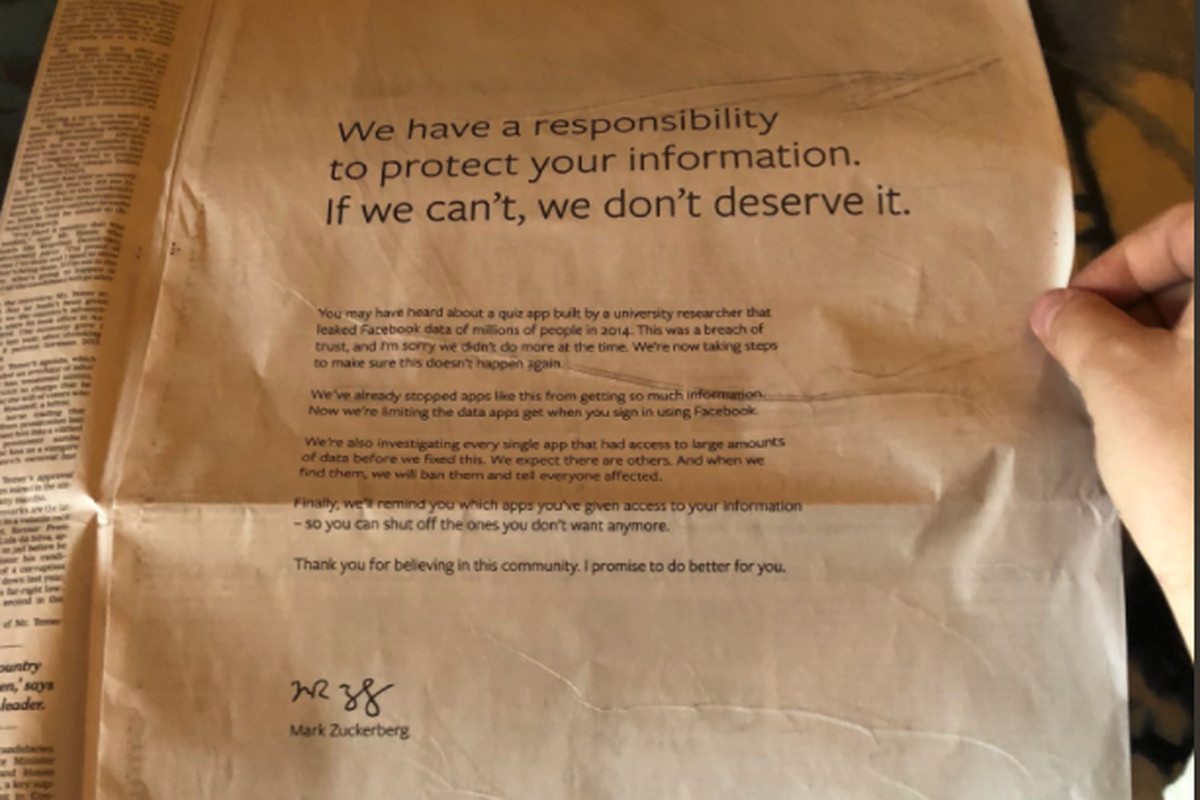
(Zuckerberg's apology ad in major US and UK media/The Verge)
This ad is the culmination of a scandal involving the leakage of Facebook users' personal data.
In early 2018, Facebook and a political data analysis firm named Cambridge Analytica were involved in a massive data breach.
Personal data from over 87 million Facebook users was obtained improperly by the political data analysis firm, Cambridge Analytica, and used for the 2016 US Presidential campaign won by Donald Trump and the 2016 Brexit referendum that led to the UK's exit from the European Union.
In the following months, Facebook had to testify in front of Congress and was fined $5 billion or Rp 77 trillion by the US Federal Trade Commission.
And now, according to newly revealed emails from 2015 discussing Cambridge Analytica, it seems that Facebook could have done something to stop this problem before it was too late.
In early 2018, Facebook admitted mishandling data from over 50 million Facebook users obtained improperly by the political data analysis firm Cambridge Analytica.
Just a few months later, that number had skyrocketed: to around 87 million Facebook users whose data was truly affected and leaked.
Facebook apologized, CEO Mark Zuckerberg appeared before Congress to answer questions, and the FTC fined Facebook with the largest penalty in history: $5 billion or Rp 77 trillion!
And in December 2022, Meta, the parent company of Facebook, agreed to pay $725 million or equivalent to Rp 11.23 trillion for the leakage of Facebook user data due to the Cambridge Analytica scandal. This was paid to the plaintiffs representing Facebook users.
Now, in a recently discovered email by NBC, it is newly revealed that Facebook employees had discussed Cambridge Analytica since September 2015.
Facebook has been desperately trying to repair its damaged reputation after the massive privacy data scandal continued.
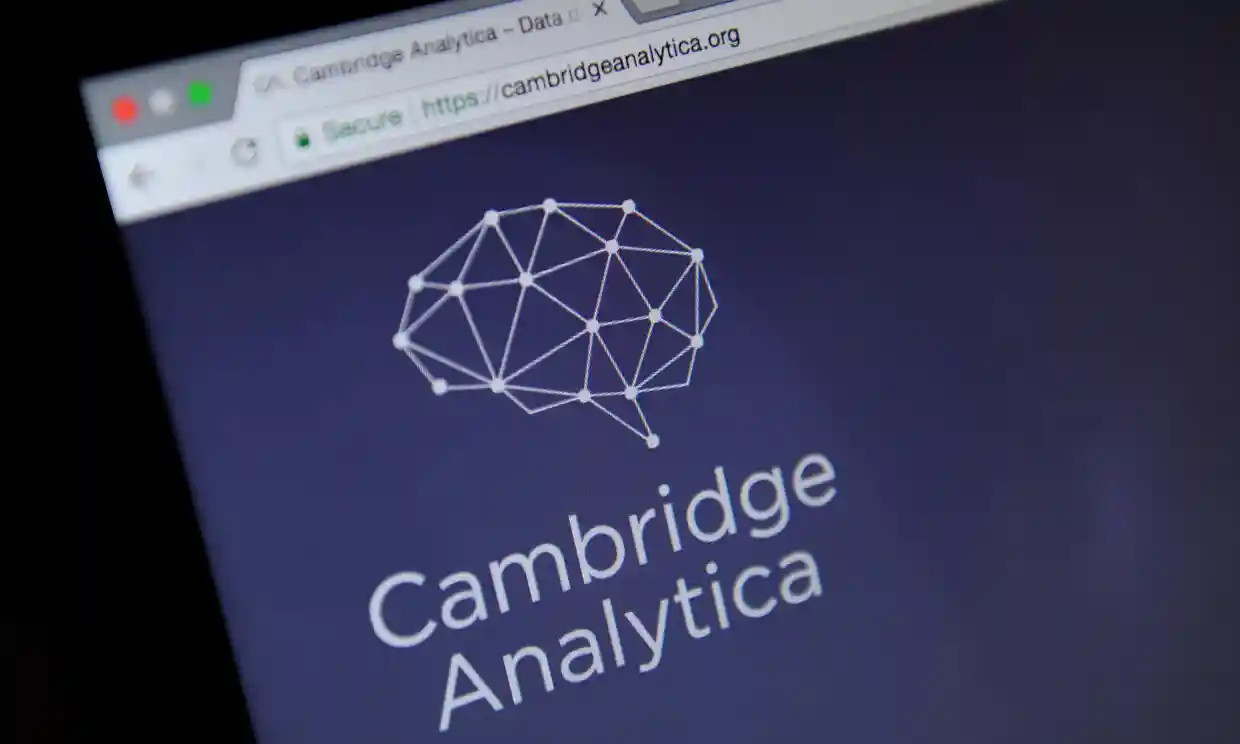
(Cambridge Analytica website when it was still active/The Guardian)
Together with London-based election consultancy firm Cambridge Analytica, the social media giant became the center of an ongoing dispute over alleged data harvesting and usage of personal data.
These allegations have raised concerns about whether the data was then used to attempt and influence the results of the 2016 US presidential election won by Donald Trump and the Brexit referendum that led the UK to leave the European Union.
Facebook CEO Mark Zuckerberg was forced to appear before Congress in Capitol Hill as the technology giant's media storm unfolded.
This is the complete story so far:
April 21, 2010 — Facebook launches Open Graph
In April 2010, Facebook announced the launch of a platform called Open Graph for third-party applications. This update allowed external developers to access Facebook user data and request permission to access most of their personal data — and, most importantly, to access the personal data of their Facebook friends as well.
If accepted, these apps would then have access to the user's name, gender, location, date of birth, education, political preferences, relationship status, online chat status, and more. With additional permissions, external sites could even access someone's private messages.
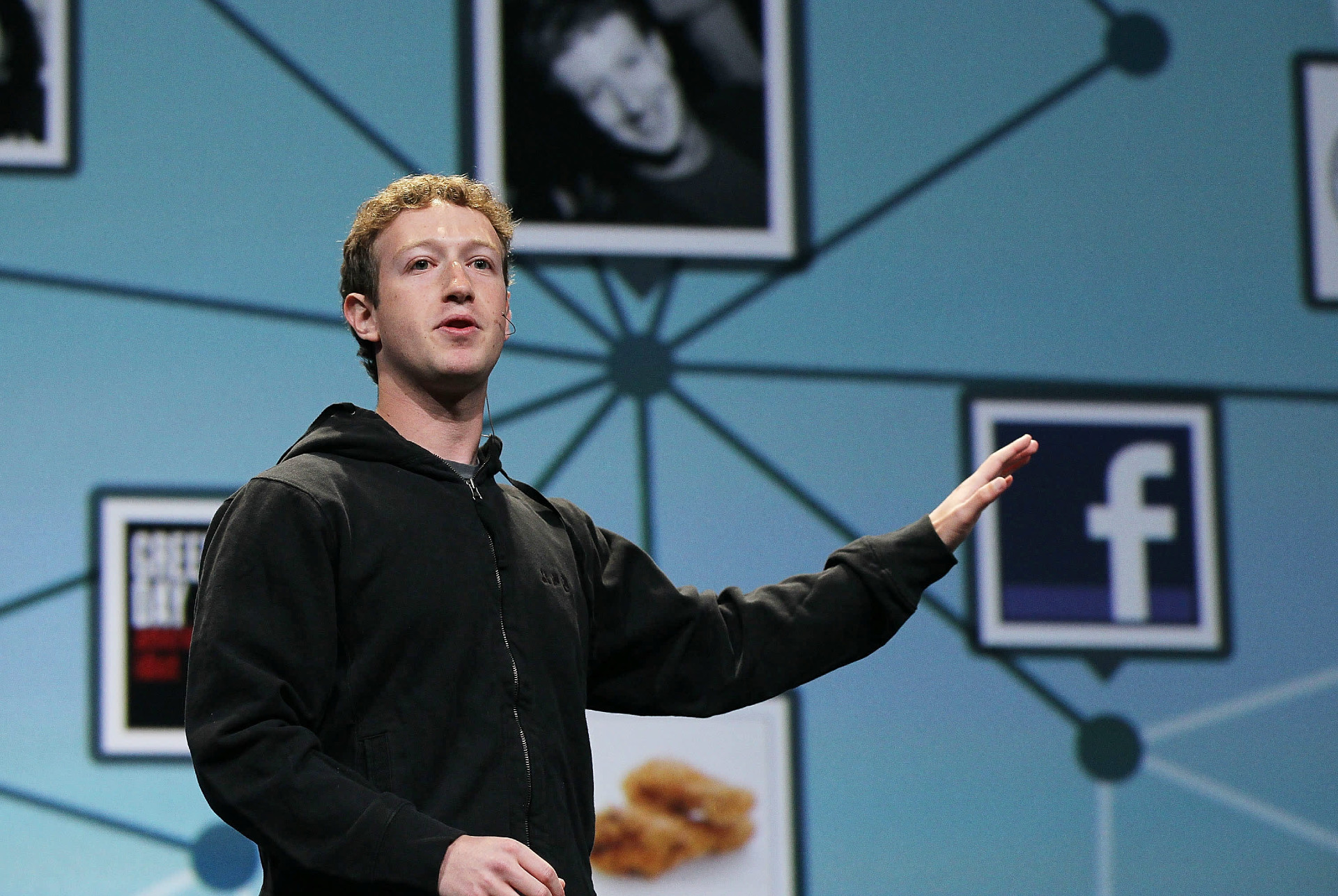
(Zuckerberg during the launch of Open Graph/CNBC)
Less than five weeks after Facebook launched the Open Graph API version 1.0 for developers, Zuckerberg wrote an op-ed in The Washington Post in which he pledged to address users' concerns about how their personal information was managed.
He said, “We have also heard that some people don't understand how their personal information is used and are worried that it is shared in ways they don't want.”
I want to clear that up now.”
2013 — 'This is Your Digital Life'
Cambridge academic Aleksandr Kogan and his company Global Science Research created a quiz app called This is Your Digital Life in 2013. The app encouraged users to answer questions to create a psychological profile.
This quiz was created by Aleksandr Kogan, a Russian psychology professor at the University of Cambridge, who shared information in a commercial partnership with Strategic Communication Laboratories (SCL), which later created Cambridge Analytica.

(Aleksandr Kogan, psychology professor at the University of Cambridge, England/CBS News)
Nearly 270,000 users are estimated to have been paid to take the psychological test — with the app later harvesting their personal data. It also collected data from their Facebook friends, reportedly resulting in Kogan having access to data from millions of Facebook profiles.
Cambridge Analytica eventually harvested information from over 87 million Facebook users through that external app in 2015.
The data came from the personality quiz, which was taken by around 270,000 people. The quiz - "thisisyourdigitallife" - in turn pulled data from their friends' profiles as well, resulting in a massive data repository.
In March 2018, a Cambridge Analytica employee named Christopher Wylie revealed the extent of the data firm's activities in interviews with The Guardian and The New York Times.
Cambridge Analytica harvested personal information about where users lived and what pages they liked, which helped build psychological profiles analyzing characteristics and personality traits.
Information like this was then used in political campaigns.
Wylie said, "We exploited Facebook to harvest millions of people's profiles. And built models to exploit what we knew about them and target their inner demons."
2014 — Rule changes
In 2014, Facebook adjusted its rules to limit developer access to user data. This change was made to ensure that third parties could not access users' data without obtaining permission first.
However, the rule changes were not applied retroactively — and Kogan did not delete the allegedly improperly obtained data.
December 11, 2015 — Ted Cruz
In late 2015, The Guardian reported that Cambridge Analytica aided the presidential campaign of Republican candidate Ted Cruz. The report suggested that the Republican candidate used psychological data based on research that included tens of millions of Facebook users in an effort to gain an advantage over his political opponents, including Donald Trump.

(Ted Cruz, Republican Party politician/Dallas Morning News)
In response to the story, Facebook said that when they learned about the data breach, they tried to ban Kogan's app and legally pressed Kogan and Cambridge Analytica to delete all the data they obtained improperly.
The social media giant claimed that both Kogan and the London-based election consultancy firm stated that the data had been deleted.
Facebook said it had removed the Cambridge Analytica quiz app from the platform in 2015 and demanded that Kogan, Wylie, and Cambridge Analytica confirm that they had deleted all the data taken.
Wylie, however, claimed that Facebook only demanded he delete all the Facebook data in August 2016, and that was a small step.

(Christopher Wylie, Cambridge Analytica whistleblower/NPR)
He said, "They (Facebook) waited two years and did absolutely nothing to check that the data was deleted." I want to clarify it now.”
2013 — 'This is Your Digital Life'
Cambridge academic Aleksandr Kogan and his company Global Science Research created a quiz app called This is Your Digital Life in 2013. The app encouraged users to answer questions to create a psychological profile.
The quiz was created by Aleksandr Kogan, a Russian psychology professor at Cambridge University, who shared information in a commercial partnership with Strategic Communication Laboratories (SCL), which later created Cambridge Analytica.

(Aleksandr Kogan, professor of psychology at Cambridge University/CBS News)
Nearly 270,000 users are estimated to have been paid to take the psychological test — with the app then harvesting their personal data. It also collected data from their Facebook friends, which reportedly resulted in Kogan having access to data from millions of Facebook profiles.
Cambridge Analytica eventually harvested information from over 87 million Facebook users through that external app in 2015.
The data came from a personality quiz, which was taken by around 270,000 people. The quiz - 'This is Your Digital Life' - in turn drew data from their friends' profiles as well, resulting in a very large data repository.
In March 2018, a Cambridge Analytica employee named Christopher Wylie revealed the extent of the data company's activities in interviews with The Guardian and The New York Times.
Cambridge Analytica harvested personal information such as where users live and what pages they like, which helped build psychological profiles that analyzed characteristics and personality traits.
This kind of information was then used in political campaigns.
Wylie said: "We exploited Facebook to harvest millions of people's profiles. And built models to exploit what we knew about them and target their inner demons."
2014 — Rule changes
In 2014, Facebook adjusted its rules to limit developer access to user data. These changes were made to ensure that third parties could not access users' data without prior permission.
However, the rule changes were not applied retrospectively — and Kogan did not delete the data that was allegedly obtained improperly.
December 11, 2015 — Ted Cruz
In late 2015, The Guardian reported that Cambridge Analytica assisted the presidential campaign of Republican candidate Ted Cruz. The report suggested that the Republican candidate used psychological data based on research that involved tens of millions of Facebook users in an effort to gain an advantage over his political opponents, including Donald Trump.

(Ted Cruz, Republican politician/Dallas Morning News)
In response to the story, Facebook said that when they became aware of the data breach, they sought to ban the Kogan app and legally pressured Kogan and Cambridge Analytica to delete all the data they had obtained improperly.
The social media giant claimed that both Kogan and the London-based election consulting firm stated that the data had been deleted.
Facebook said it removed the Cambridge Analytica quiz app from its platform in 2015 and demanded that Kogan, Wylie, and Cambridge Analytica confirm that they had deleted all the data taken.
However, Wylie claimed that Facebook only demanded that he delete all his Facebook data in August 2016, and it was a small step.

(Christopher Wylie, Cambridge Analytica whistleblower/NPR)
He said: "They (Facebook) waited two years and did absolutely nothing to check that the data was deleted." All they asked me to do was check a box on the form and post it back.
When the story first broke in early 2018, raw copies of the data obtained by Cambridge Analytica were still available online.
2016 — Donald Trump Campaign
Leading up to the US presidential election, the Trump campaign team began heavily investing in Facebook ads. This move involved the assistance of Cambridge Analytica, and during an undercover operation, the company's CEO, Mark Turnbull, told Channel 4 News in the UK that the company was responsible for the "Crooked Hilary" video campaign on Facebook.

(Donald Trump 2016 Presidential Campaign/NYT)
Thanks to Cambridge Analytica, Trump was elected as the US President that year.
17 March 2018 — Cambridge Analytica Scandal Revealed
In an explosive exposé published in mid-March, The Guardian and The New York Times initially reported that 50 million Facebook profiles had been harvested for Cambridge Analytica in the largest data leak scandal. This number was later revised to 87 million Facebook profiles.
The articles attempted to unravel how the data of millions of Facebook users ended up in the hands of Cambridge Analytica.
Christopher Wylie, one of the founders of the political data analytics firm, revealed the alleged practices to both newspapers. Wylie claimed that the data sold to Cambridge Analytica was then used to develop "psychographic" profiles of individuals and deliver pro-Trump material to them online.
Cambridge Analytica has since denied any use of Kogan's data in relation to the Trump campaign.
20 March 2018 — FTC Investigation Begins
The US Federal Trade Commission (FTC) began an investigation into whether Facebook had violated a settlement reached with the US government in 2011 regarding the privacy protection of users.
Meanwhile, US lawmakers urged Zuckerberg to testify before Congress.
21 March 2018 — Zuckerberg Breaks His Silence
In a post on Facebook published a few days after the initial reports, Zuckerberg finally responded to the ongoing impact of the data scandal.
He said, "We have a responsibility to protect your data, and if we can't then we don't deserve to serve you. I've been working to understand exactly what happened and how to make sure this doesn't happen again."
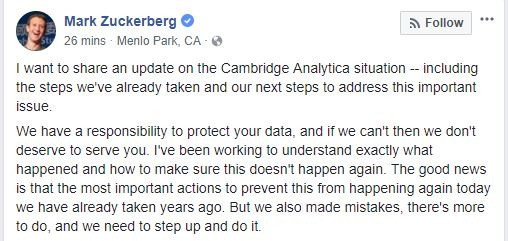
(Zuckerberg's First Comment on Facebook Post about Cambridge Analytica/Business Insider)
Zuckerberg also announced that the social media giant would no longer allow app developers to access user data after three months of inactivity and would reduce the amount of information people have to share with third parties. Facebook would also audit all apps with access to large amounts of data prior to 2014, he added.
25 March 2018 — 'Sorry We Didn't Do More'
Around two weeks after the reports were published, Zuckerberg took out a full-page ad in several UK and US newspapers to apologize for the "breach of trust."
"I'm sorry we didn't do more at the time. We're now taking steps to make sure this doesn't happen again," he said.
The ad appeared in The New York Times, The Washington Post, and The Wall Street Journal in the US, as well as UK media outlets such as The Observer, The Sunday Times, The Mail on Sunday, Sunday Mirror, Sunday Express, and The Sunday Telegraph.
10 April 2018 — Time to Testify
Zuckerberg was scheduled to appear before a joint hearing of the Senate Judiciary and Commerce Committees on Tuesday. This was one of two Capitol Hill appearances for the Facebook founder and CEO this week, with Zuckerberg set to testify before the House Energy and Commerce Committee on Wednesday.
In his opening statement, Zuckerberg said, "Over the past few weeks, we have been working to understand exactly what happened with Cambridge Analytica and taking steps to make sure this doesn't happen again."
2019 – Facebook Fined $5 Billion by FTC
Then in 2019, Facebook was fined $5 billion by the US Federal Trade Commission (FTC).
Facebook faced the fine from the FTC as part of a settlement over allegations of mishandling user data.
The fine was a record FTC penalty and may set a precedent for the type of punishment that can be expected by tech giants for mishandling user data. It was a direct response to the Cambridge Analytica scandal.
Outside of the fine, a series of regulations were imposed on Facebook.
And now, the latest news on the ongoing controversy is that Facebook knew about Cambridge Analytica much earlier than previously stated.
On Friday, Dylan Byers of NBC published copies of internal Facebook messages from September 2015 in which employees discussed "clients in the political space."
One of those clients, Cambridge Analytica, was described in the correspondence as a "shadowy (at least) data modeling company."
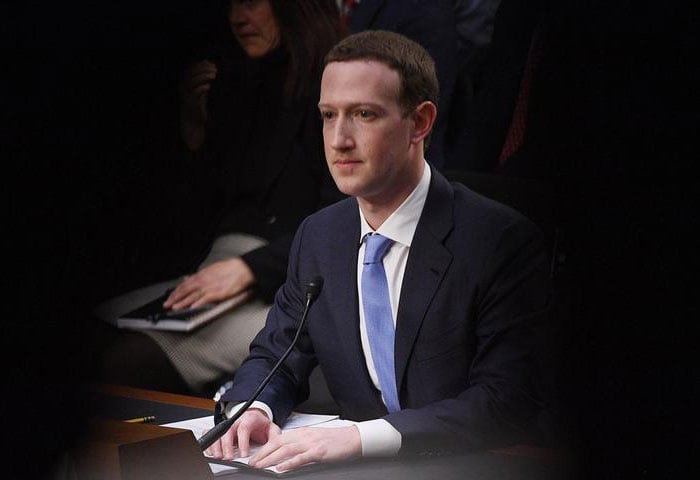
(Zuckerberg Testifies Before US Congress/RTV)
In the emails, employees discussed the details further — and even discussed the possibility of an investigation into data erosion by political partners.
It wasn't until December 2015 when Facebook first became aware of the extent of Cambridge Analytica's data mining practices and began taking action.
In short, Facebook employees flagged potential concerns about Cambridge Analytica's practices as early as September 2015, but the company took no action until March 2018.
27 December 2022
Facebook's parent company, Meta, agreed to pay $725 million or around IDR 11.23 trillion for the Cambridge Analytica scandal.
The fine is to settle a class-action lawsuit filed by Facebook users over the alleged data leak by Cambridge Analytica in 2018.
According to CNN, the case was first filed four years ago. Not long after the company revealed the personal information of 87 million Facebook users leaked.
Meta spokesperson Dina Luce mentioned that the company wants to resolve the issue. She said that over the past three years, Meta has implemented comprehensive privacy standards.
"We hope to continue providing services that are preferred and trusted by the community," she said on Tuesday, December 27, 2022. (eha)
Source: CNBC, Business Insider, NBC, CNN
Cobain For You Page (FYP) Yang kamu suka ada di sini,
lihat isinya
Zuriat in Arabic means offspring, which is why zuriat fruit is believed to have benefits in helping pregnancy programs.
The Secretary of Pertamina Patra Niaga, Irto Ginting, urges people who are capable to use 5.5 kg or 12 kg Non-Subsidized LPG.
Throughout 2022, cases of violence against journalists in Indonesia were more numerous than in previous years.
No premonition at all, Sonu even considered their journey to be very enjoyable.
Is it true that the post claiming that the Ministry of Social Affairs (Kemensos) distributes Rp600 thousand DANA assistance balance by downloading a specific application?
Arya reveals, the former Inter Milan President is disappointed. Moreover, the person concerned is an employee in one of the SOEs.
According to the prosecutor, Putri deliberately changed clothes to support the scenario as if Brigadir J was killed in a shootout with Bharada E after being caught trying to rape Putri.
This is the appearance of Anies Baswedan's house, there is an ancient joglo built since 1743
According to the prosecutor, Ricky Rizal violated Article 340 of the Criminal Code in conjunction with Article 55 paragraph 1 of the Criminal Code.
Their behavior appears awkward and uncomfortable.
Hundreds of millions of money can be seen being put into a box decorated with golden ribbons.
An employee of the University of Informatics and Business Indonesia (UNIBI) with the initials DL was fired for allegedly insulting President Jokowi.